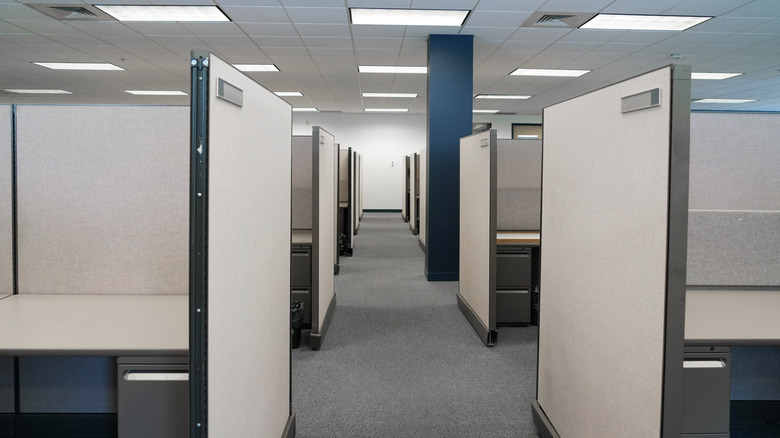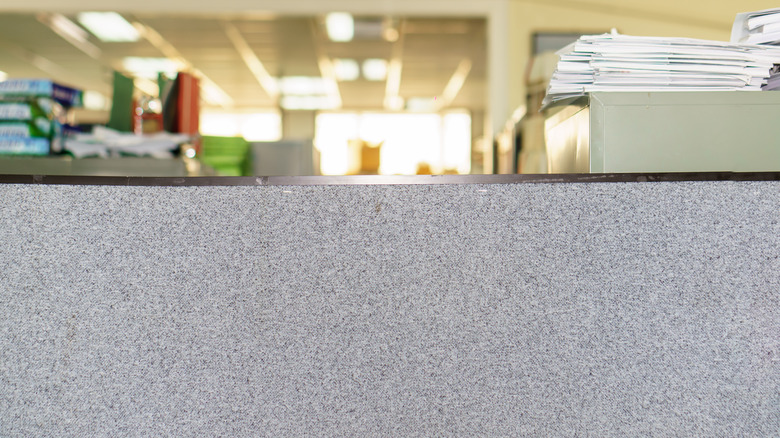Why Robert Propst Regrets Inventing The Office Cubicle
Ever since its debut in office workspaces around the world, the cubicle has gained an exceptionally negative reputation. The personal experience of those who work in such environments has been characterized as isolated, claustrophobic, and anti-social. The gray walls have seldom been done any favors by film and television, which often make a point to depict the office cubicle as an imaginative dead end that characters find themselves trapped in. Comedian Tommy Chong even made the claim that prison cells were just as "nice" as cubicles.
Robert Propst, the inventor of the office cubicle, made his hatred of the thin walls clear to The New York Times in 1997 by labeling their utilization as "monolithic insanity." If even Propst hated office cubicles, why did he invent them in the first place?
The answer is that Propst's initial creation was nothing like the grid-like systems offices have now used for decades. Instead, Propst initially made and was hailed for a workspace that provided office workers with greater freedom than they ever had before.
Money warped an ideal work environment into one hated by millions of people
Building off of earlier prototypes, in the 1960s Propst introduced the "Action Office II" to the public. If a given employee required or preferred a certain amount of space in which to work, the modular nature of Propst's lightweight wall design was meant to easily provide it. In the media he was praised for his revolutionary and then-brightly colored office concept (via Wired). However, the businesses that adopted his system warped it into one that would do little except benefit their pocketbooks (via Scientific American).
In just a few decades the walls of Propst's model were fixed into small grey cubicles ideal for large numbers of employees to be shoved into, thus reducing the cost of additional office space at the expense of employee comfort. This new environment emerged at the same time as the recession, rendering the cubicle a reminder of how at any moment an employee could be fired (via Vox). Not unlike Dr. Frankenstein, Propst could do little as this perversion of his creation gained traction across the world. While modern companies are making strides in creating liberating office space, millions remain trapped in the monotonous grey (via Herman Miller).
By the end of his career, Propst had more than 120 patents to his credit. He died in 2000.

